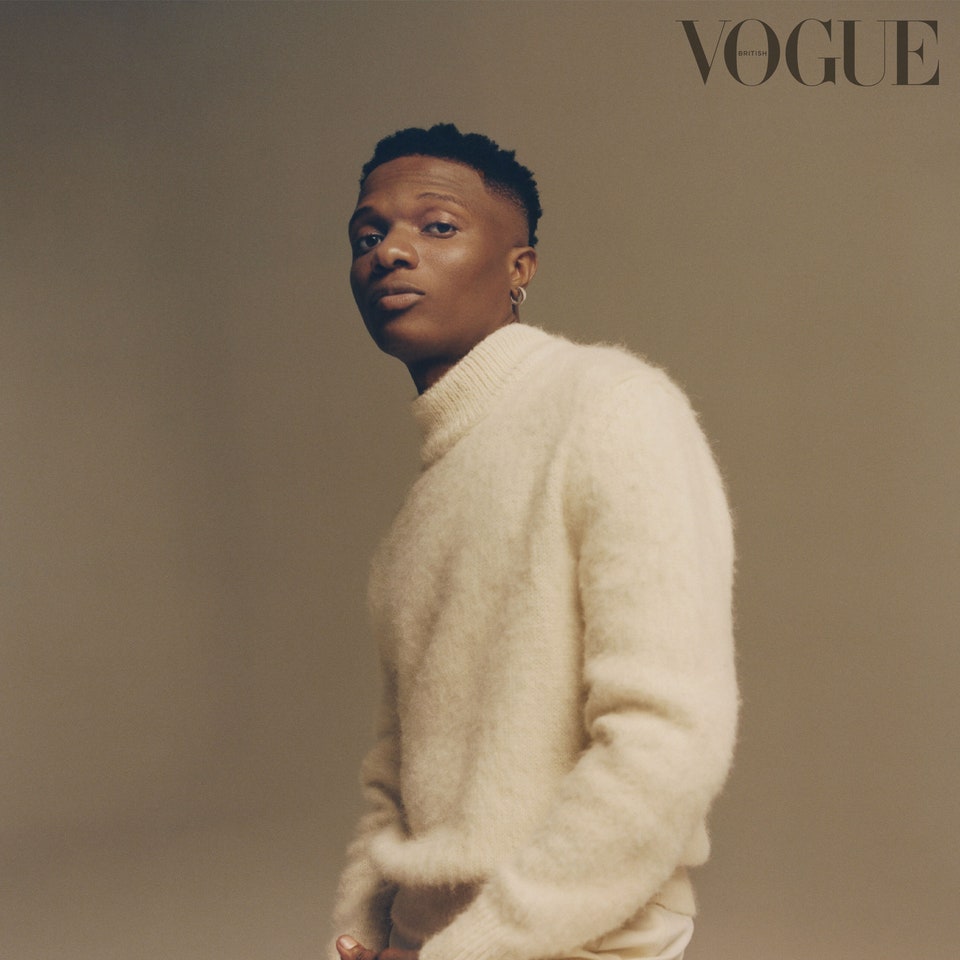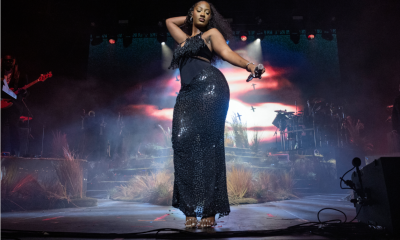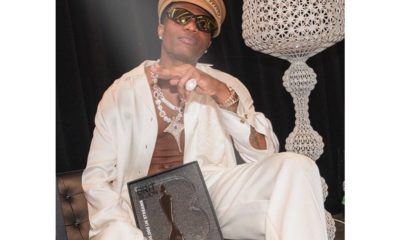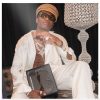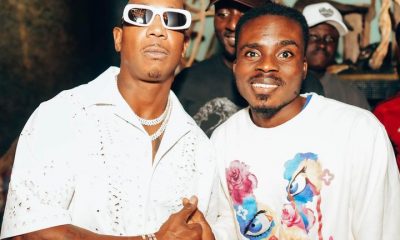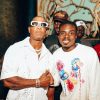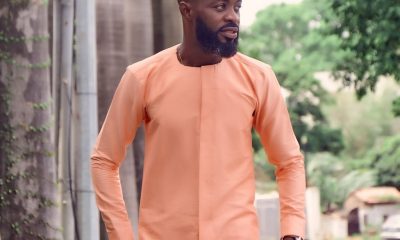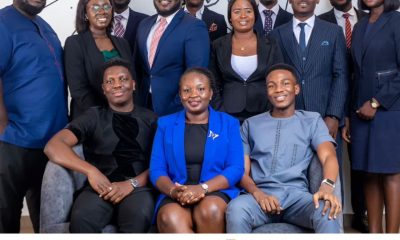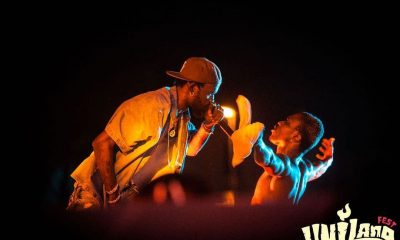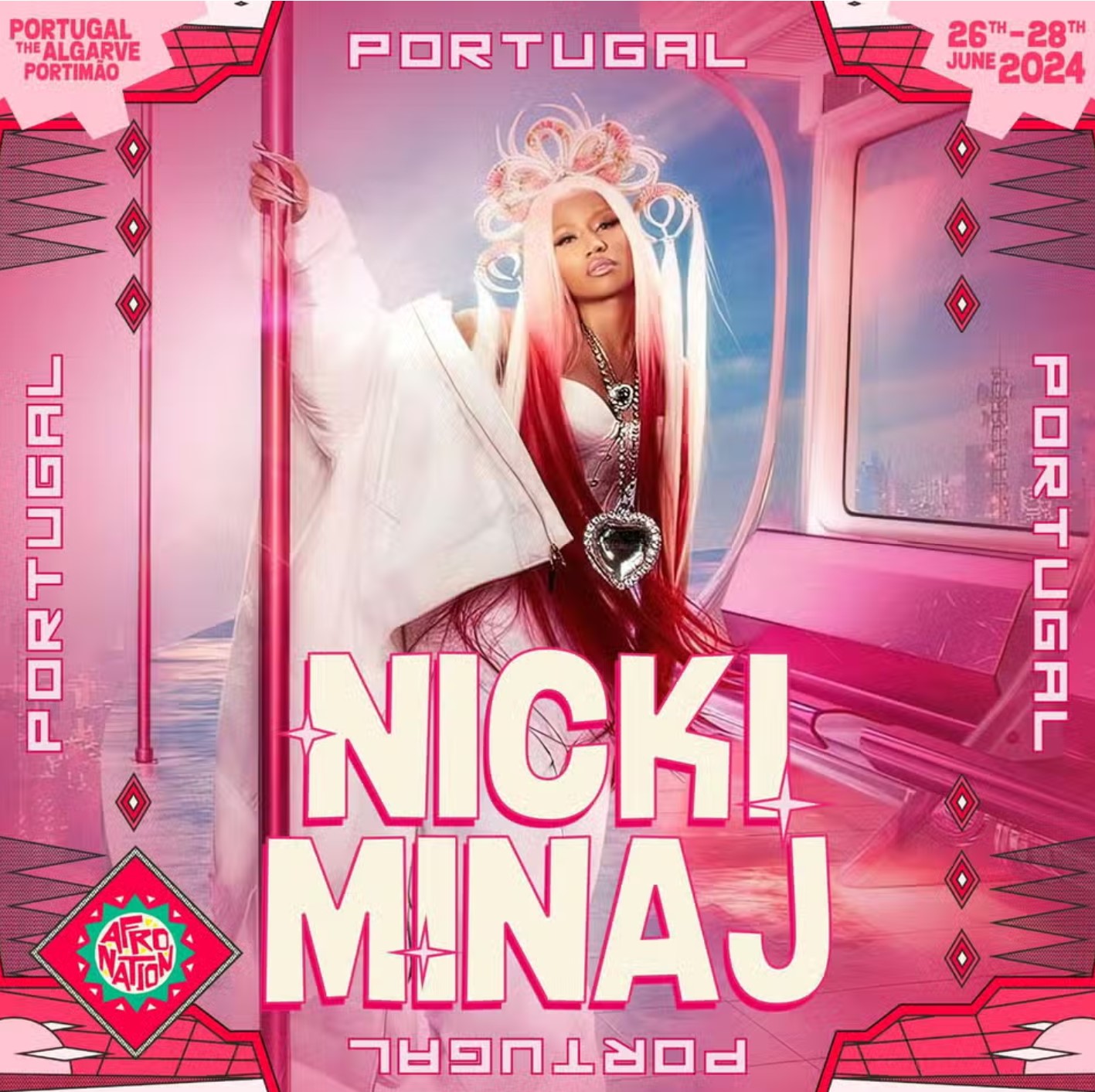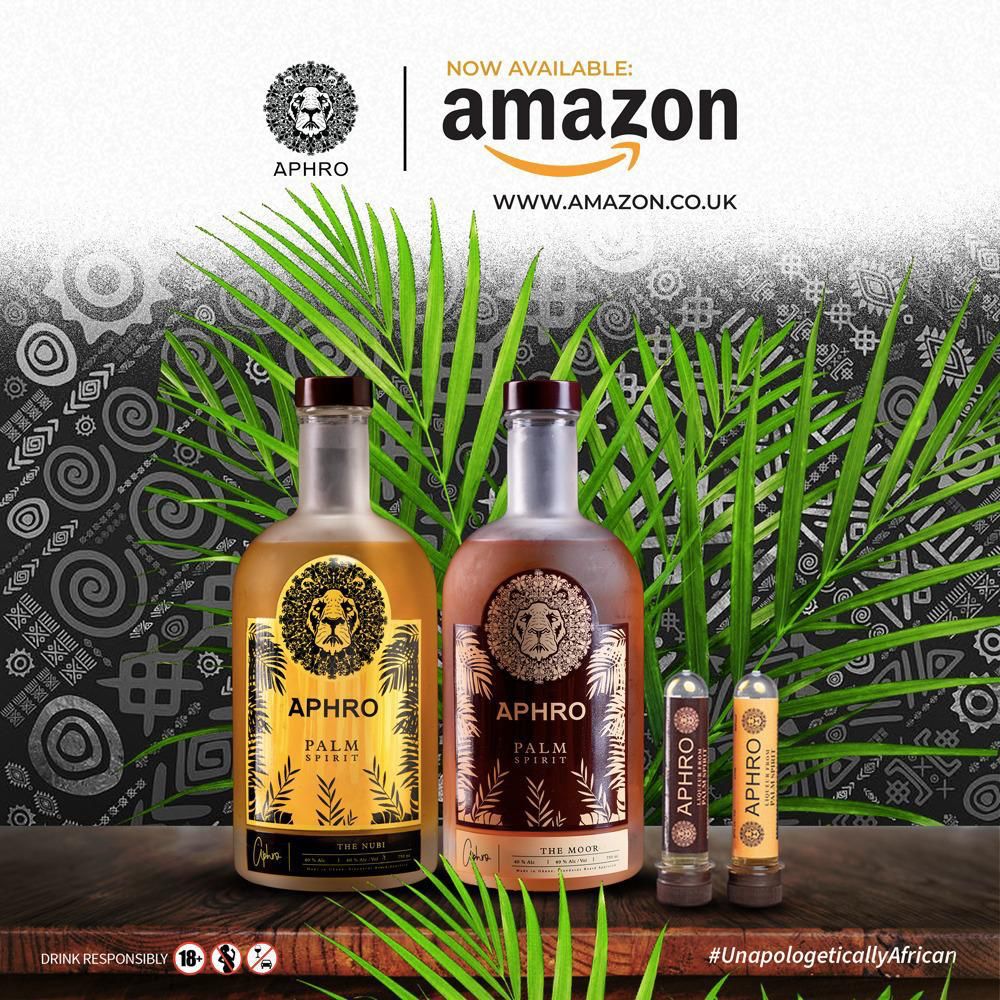Wizkid Talks Touring, Fatherhood And World Domination
Ahead of his London tour, the Grammy Award-Winning “Made In Lagos” author, delves into his journey to fame from the streets of Lagos. He inspires a story of resilience, passion, and solid drive for success when he says
Early this year, he released one of the most popular albums with over a billion listens, won Best African Music Act at the 2021 MTV EMA Awards, and was nominated for Best African Music Act at the 2021 MOBO Awards. All of this, coupled with his private life, has landed Big Wiz in the spotlight of British Vogue, where he talks about life, music, and family.
“It’s crazy because the first time I was actually booked for a show in London, I couldn’t get the visa to go. I remember I filmed a video to apologise to my fans – and they went in on me!”
Spending the time touring the world could make one forget their root. But not for Wizkid. He hammers on his love for Nigeria and Africa. Nothing has stopped him from being any of that. According to him,
“I’m unapologetically Nigerian, I’m unapologetically Lagosian, and that’s something I’ve stuck to from the beginning of my career.”
“Back home, we dress comfortably, it’s everything for me,” says Wizkid, born Ayodeji Ibrahim Balogun, with an accent that falls somewhere between east London and Lagos. He inspects the rack of clothes with an intensity that suggests he understands the devil is in the detail and wastes no time in picking out his favourite things: two looks that have been created especially by British menswear designer Bianca Saunders, a pair of slouchy, black, patent-leather trousers that he rules out (“they need to be tighter”) in favour of a beige-pleated pair. “This is it,” he says, buttoning up the matching short-sleeved shirt and serving his best blue steel in the mirror. He douses himself with a mystery fragrance, one he refuses to name like it’s holy water. One shiny pair of black Martine Rose slip-on loafers later, and he’s ready to go. “It’s funny because now you see all the guys wearing slippers and tight pants,” Binns says, racing after Wizkid as he heads towards the stage door. “The impact he has beyond that, well, it’s just huge.”
In the past year alone, Wizkid’s sphere of influence has exploded. Released in October 2020, the critically acclaimed Made in Lagos, Wizkid’s fourth studio album, continues to smash one industry record after another, including the one set posthumously by 1970s Afrobeats legend Fela Kuti in the late 1990s. The album’s success – it has been streamed more than one billion times – has been largely buoyed by the colossal triumph of “Essence”, a lilting Afrobeats love song. Originally recorded as a duet with rising Nigerian Alté singer Tems, the track caught the ear of Justin Bieber who jumped on the remix as the song became inescapably popular over summer.
But British music fans have been mesmerised by Wizkid’s sweet melodies for quite some time. It is a testament to his ultra-loyal fanbase in the UK, or the Wizkid FC as they are known as a global collective, that the O2 stadium recently sold out all of its 20,000-plus seats for three consecutive tour dates in a matter of minutes. Thanks in no small part to its thriving diaspora communities, London has become a home away from home for Wizkid and a generation of fresh young Nigerian talent – Burna Boy, Davido and Rema, to name a few – that cross-pollinates R&B, dancehall and potent palm wine beats. Now, that proudly African sound is being rapidly exported across the globe in a moment when we need its feel-good music the most.
“London has always been a special place for me,” says Wizkid when we catch up on the phone a few days later – much like any rock star who’s routinely trailed by hoards of screaming fans, Wizkid can be a hard man to pin down. About to board a plane to the next leg of his tour, he sounds weary but sanguine, his three-year-old son, Zion, babbling in the background. “From the moment I landed, it was love everywhere I went,” he continues. “It’s crazy because the first time I was actually booked for a show in London, I couldn’t get the visa to go. I remember I filmed a video to apologise to my fans – and they went in on me!” A few months later and the fresh-faced singer, then only 21, would play his first international gig at the HMV Hammersmith Apollo. Even grainy YouTube videos of his set prove he had the makings of a star.
To see Wizkid perform is to comprehend his prowess as an entertainer. The atmosphere at his mid-week show in Atlanta is nothing short of ecstatic, somewhere between Sunday service and Saturday-night rave. The moment Wizkid starts performing, all three tiers of the hall are on their feet singing in unison.
“As soon as he came on to the stage, I just got it,” says Naomi Campbell, self-confessed Afrobeats fanatic and friend of Wizkid, over the phone from her home in London. She is recalling his headline set at Homecoming, a festival co-conceived by British-Nigerian creative Grace Ladoja as a celebration of Lagos’s vibrant cultural scene, which the model attended with grime legend Skepta and actor John Boyega in the summer. “He’s very much loved by the people in Lagos,” continues Campbell. “Whenever I’m there with him, I’m just mesmerised by how much the people on the street love him. It’s a beautiful thing to witness.”
The album Wizkid is currently touring has come to symbolise a sort of post-lockdown euphoria, but it’s easy to forget that Made in Lagos was released when many places in the world were in the throes of a second wave. The musician found himself stranded in London during the lockdown. When I ask him about that time, his voice takes on a different tone. “Being away from Nigeria and my family for so long brought me to my darkest point. That’s why I feel this album means the same thing to me as it does to a lot of other people – it really helped me through a tough time,” he says. It was only earlier this year that the singer was finally able to return home and introduce Zion to Boluwatife, his 10-year-old son from a previous relationship, for the first time. “To see the two of them playing together, almost made me cry. It was a blessing.”
Blessed is without question the adjective Wizkid uses most often to describe his extraordinary path (it’s also – surprise, surprise – the title of the song he sings with Damian Marley on the latest album). Raised by a Muslim father and Christian mother, Wizkid and his seven siblings grew up in Surulere, the bustling middle-class enclave in Lagos. Here, the city’s bright-yellow auto rickshaws, or keke maruwas, are always bumper to bumper in traffic, and street vendors peddle their wares on every corner. “There are no amount of words I can put together to make you understand what Lagos is, to explain the hustle, or the political injustice, the strength of the people or the number of amazing creatives,” he says. “To fully understand it, you have to experience it for yourself. Go to Lekki, go to Ojuelegba [a particularly vibrant area of Wizkid’s neighbourhood], go to the clubs and you’ll see what the music does to the people.”
Read the full interview here.


